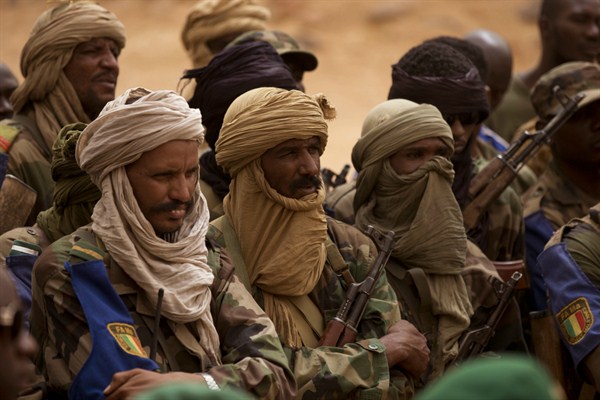June 20 marked the one-year anniversary of the landmark peace deal struck in Algiers between the government of Mali and separatist Tuareg rebel fighters. In 2012, the fighters, joined by Islamist militias allied with al-Qaida in the Islamic Maghreb (AQIM), led an uprising against the central government, claiming an independent northern state called Azawad. The Algerian-brokered deal was a bid to put an end to the cycle of rebellions that have tormented northern Mali since the 1960s.
The agreement also sought to bring sustainable peace more generally to Mali, a former beacon of democracy. This, according to the agreement, known as the Algiers Accords, would be achieved through political and institutional reforms; an overhaul of the defense and security apparatus; and the pursuit of justice, reconciliation, economic development and an improved humanitarian situation in the north.
But a year later, Mali’s security and political context has dramatically evolved, creating challenges for the implementation of the Algiers Accords. Acts of terrorism have been on the rise, putting the country on a war footing against extremist forces. In addition, the rebel groups that signed the agreement have proved to be extremely diverse in their structures and ambitions. Their shifting alliances and respective stakes in the peace process have highlighted the need for a revised, less stringent interpretation of the agreement due to the changing nature of its main stakeholders. In order for the deal to gain traction, it should be considered a framework for iterative progress, rather than a binding roadmap to peace.

